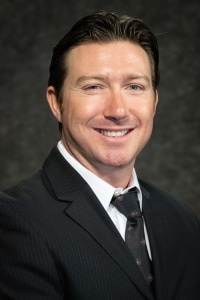Expository preaching is catching momentum in many local churches. However, many expositors shy away from seeing the correlation with biblical counseling. Preachers are afraid to deal with the “soft sciences” because they may lose members. We leave our members to be held captive by the philosophies of the world (Col 2:8). Members trust any advice “experts” give without discernment.
Sadly, many members have been trained to not seek counsel from their leaders because they aren’t being given biblical responses to the real problems they face daily. Expository preaching makes us thoroughly equipped to give real answers for spiritual problems. When we fail to lead in this way, we let our members seek solutions that deal with side-effects instead of the idols of the heart.
Expositors, you are the spiritual doctor that God has placed in each member’s life to understand the greatness of the gospel. We must teach our members to use all of Scripture for addressing many problems that can be traced back to spiritual issues. As Martyn Lloyd-Jones says of those in the church who are not interested in the doctrines of the gospel:
They like Bible expositions but do not like doctrine. They claim to believe doctrines which are in the Bible and which come out of the Bible, but . . . they draw this fatal contrast between biblical exposition and doctrine. . . . It is doctrine that focuses things. . . . Doctrine speaks to us and insists upon a decision. . . . Doctrine and dogma was to enable people to see and to think clearly.”1Lloyd-Jones, D. Martyn. Spiritual Depression. 2nd edition. Zondervan, 1998, p.45.
Expositors, not worldly counselors, remember that the main counselor in the soul of a Christian is the Holy Spirit through the Word of God (John 14:25–27; 16:7–9; Heb 4:12). The expositor must teach the Church to be encouraged to seek biblical counsel from the Word of God and be warned from seeking worldly counsel:
Biblical Encouragement
The treasures of Gospel righteousness bring us from metanoeo (Acts 2:38) to metamorphoo (Rom 12:2); or simply put, from repentance to transformation.
Shepherding is necessary at every local church. Shepherding must come in the form of biblical counsel through discipleship within the local Church. When an expository preacher steps off the pulpit, he is shepherding his members to deal with real problems in life. Without a shepherd teaching the members, they are left to fend for themselves (Ezek 34:1–10). Your members are seeking counsel for their soul, but many are getting counsel from the wicked (Ps 1:1).
Without proper teaching, members are not realizing that the treasures of Gospel righteousness bring us from metanoeo (Acts 2:38) to metamorphoo (Rom 12:2); or simply put, from repentance to transformation. We often think that our expository preaching reaches the pews to the point that people make real biblical changes in the way they approach problems.
Sadly, as we get to know people better, we see many of our members using unbiblical solutions suggested by Christian psychologists to their problems. Psychology and Christian Psychology offers a study on the soul, without having a biblical understanding of the soul. John MacArthur states,
[True Psychology] can only be done by Christians, since Christians have the resources for the understanding and transformation of the soul. . . . [Christian Psychology] is an oxymoron. The word psychology no longer speaks of studying the soul; instead it describes a diverse menagerie of therapies and theories that are fundamentally humanistic. The presuppositions and most of the doctrine of psychology cannot be successfully integrated with Christian truth.2MacArthur, John F. Our Sufficiency in Christ. Wheaton, Ill: Crossway, 1998, p. 58–59.
Expositors are Responsible for Teaching Biblical Counsel in the Church
Whether we are in Genesis 4 dealing with Cain, or Psalm 1 with David, or even Daniel 4 with Nebuchadnezzar expositors must deal with the battle of the soul discussed in the passage.
Lexically, counseling used to be called “nouthetic” counseling, because it derived from the New Testament word noutheteo, which meant to “admonish, warn, and exhort” believers (1 Thess 5:12, 14; Col 1:28). Expositors have the incredible privilege to prepare their members to be admonished, warned, and exhorted in everyday problems.
As expositors, we rely on noutheteo through the sufficiency of Scripture, where we can profit through its ability to teach, reproof, correct, and train in righteousness (2 Tim 3:16). That is the biblical solution for helping a person who wants to benefit from the God-breathed Word. Expositors also preach that God has “granted to us everything pertaining to life and godliness, through the true knowledge of Him who called us by His own glory and excellence” (2 Pet 1:3).
However, our members need to hear us teach out loud in sound doctrine that the sufficient Word of God can refute any philosophies that contradict biblical theology (Tit 1:13). If expositors are going to study, practice, and teach the Word of God (Ezra 7:10), then they must give biblical counsel to issues of the soul and their members must be aware of their positions.
Whether we are in Genesis 4 dealing with Cain, Psalm 1 with David, or Daniel 4 with Nebuchadnezzar expositors must deal with the battle of the soul discussed in the passage. If expositors are not providing sound practical doctrine through preaching, we are not feeding our members.
Noutheteo is a Pastoral Responsibility
There are four uses of noutheteo in the NT that apply to the ministry of Shepherds. Specifically, these four uses are used in four different books and teach us the variety of counseling for expositors:
- “admonish each one with tears” (Acts 20:31)
- “admonish you as my beloved children” (1 Cor 4:14)
- “admonishing every man and teaching every man with all wisdom so that we may present every man complete in Christ” (Col 1:28)
- And ministers work had to “give instruction” (1 Thess 5:12)
Noutheteo is a Membership Responsibility:
There are four uses of noutheteo in the NT that apply to the responsibilities of all members in the Church:
- “And concerning you, my brethren, I myself also am convinced that you yourselves are full of goodness, filled with all knowledge and able also to admonish one another” (Rom 15:14).
- “Let the word of Christ richly dwell within you, with all wisdom teaching and admonishing one another with psalms and hymns and spiritual songs, singing with thankfulness in your hearts to God” (Col 1:16).
- “We urge you, brethren, admonish the unruly, encourage the fainthearted, help the weak, be patient with everyone. See that no one repays another with evil for evil, but always seek after that which is good for one another and for all people” (1 Thess 5:14–15).
- “If anyone does not obey our instruction in this letter, take special note of that person and do not associate with him, so that he will be put to shame. Yet do not regard him as an enemy, but admonish him as a brother” (2 Thess 3:14–15).
Biblical Examples
There are many examples in the Bible that show profitable steps towards change. I am not saying you shouldn’t take steps to get medically checked. And if you are reading this and thinking I am against true science, you’re mistaken. Just like a biblical view of Genesis, science is on our side when we are dealing with real organic problems that have been pathologically or scientifically proven through labs and tests. I am against “soft sciences” that deal with symptoms without true scientific research and attempt to bring change through drugs, which will never solve the spiritual issues.
Often times we get unbiblical counsel when we introduce organic issues into matters that very well could have been treated biblically in the first place. Even in situations where combinations of organic and non-organic issues are at hand, a Christian is still responsible for producing the fruit of the Spirit and living out the one-anothers. When Churches fail to deal with the spiritual problems, we allow our members to introduce unbiblical solutions and problems spiral out of control (Ps 1:1–2).
A Biblical Response
Look at the problem in the case of Nebuchadnezzar in Daniel 4. His behavior was mental, and modern psychologists would have given multiple prescriptions because they are not even considering that there would be a soul condition dealing with non-organic problems. Yet, Nebuchadnezzar had his “reason returned” to him as he “blessed the Most High and praised and honored Him who lives forever” (Dan 4:28–36). The spiritual (non-organic) problem was addressed by a biblical response.
An Un-Biblical Response
However, Cain in Genesis 4:6–7 was given a condition to respond right: “if you do well.” Expositors need to preach the “ifs” of the Bible. Cain’s problem of anger and a fallen countenance (Gen 4:6) meant he was depressed, but God showed him a way out as the events were unfolding before him: “If you do well, will not your countenance be lifted up?” (Gen 4:7). However, there was also a biblical warning: “If you do not do well, sin is crouching at the door” (Gen 4:7b). Sadly, Cain responded with the sin of murder (Gen 4:8) + Lies (Gen 4:9) = further depression and consequences (Gen 4:9–15).
Like Nebuchadnezzar and Cain, How often do our members go through real problems in life and not have biblical counsel to “do well” or “bless the Most High” in their situation. How many times do our members consider the non-organic issues at hand and seek biblical counsel. If expositors ignore the reality of spiritual matters in the realm of human problems, our members will be left to the council of the wicked, propagated by pharmaceutical companies and worldly agendas that fail to deal with the spiritual problems and never get true biblical help. We must be warned of letting our people go to the world for counsel. Whether it is depression, gender, or someone who believes a sin issue is a disease, we must have our members seek the unchanging counsel of the sufficient Word of God.
If we don’t point our people to seek biblical counsel, they will be left to an ever-changing hedonism that is “always learning and never able to come to the knowledge of the truth” (2 Tim 3:7). Expositors need to teach their members to seek biblical counsel because we preach the true knowledge of Christ, which is the same yesterday and today and forever (Heb 13:8) and does not return void (1 Cor 1:17). Biblical counsel leads to profitable change.
References




